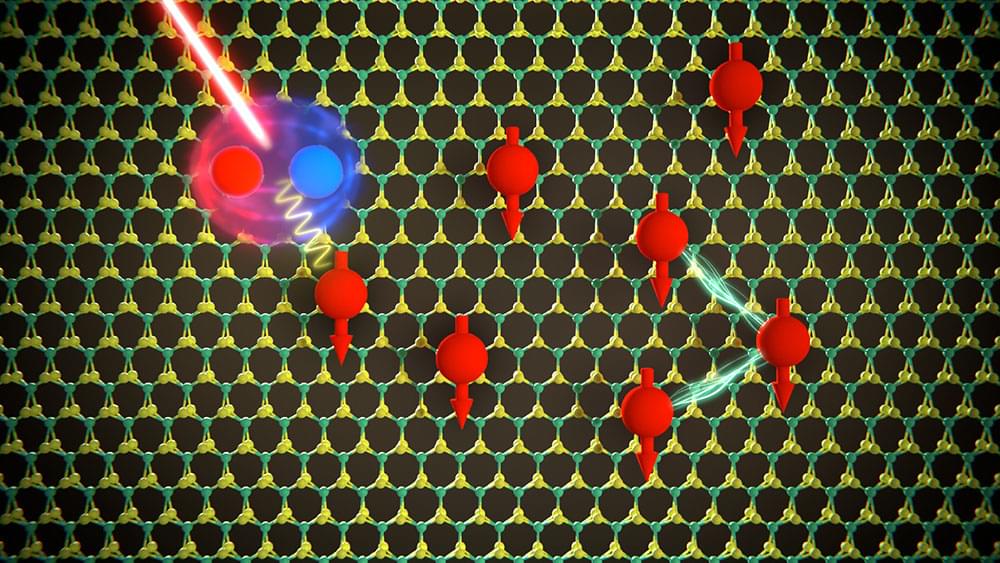Ferromagnetism is an important physical phenomenon that plays a key role in many technologies. It is well-known that metals such as iron, cobalt and nickel are magnetic at room temperature because their electron spins are aligned in parallel — and it is only at very high temperatures that these materials lose their magnetic properties.
Researchers led by Professor Richard Warburton of the Department of Physics and the Swiss Nanoscience Institute of the University of Basel have shown that molybdenum disulfide also exhibits ferromagnetic properties under certain conditions. When subjected to low temperatures and an external magnetic field, the electron spins in this material all point in the same direction.
In their latest study, published in the journal Physical Review Letters (“Exchange energy of the ferromagnetic electronic ground state in a monolayer semiconductor”), the researchers determined how much energy it takes to flip an individual electron spin within this ferromagnetic state. This “exchange energy” is significant because it describes the stability of the ferromagnetism.










Leave a reply